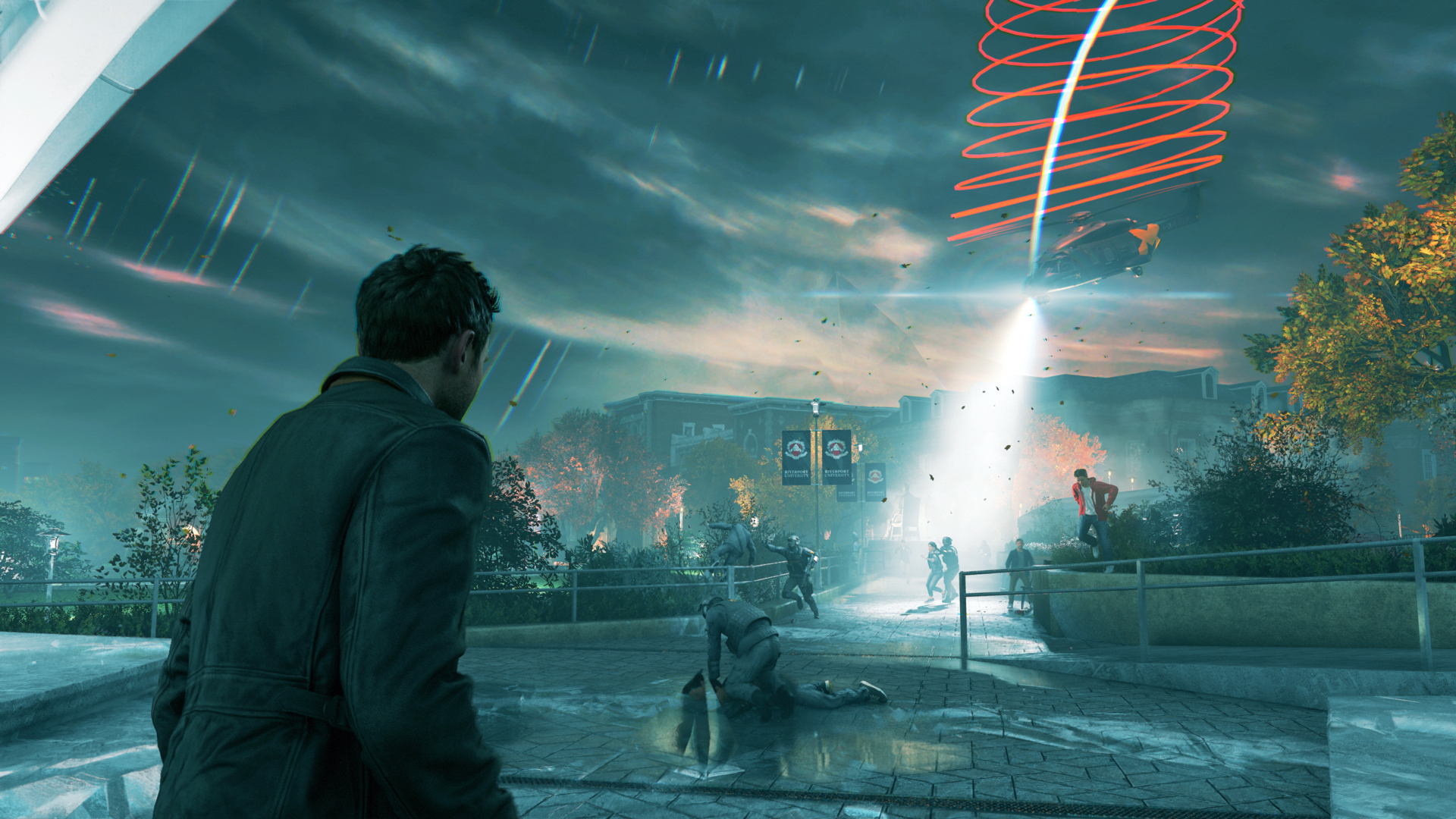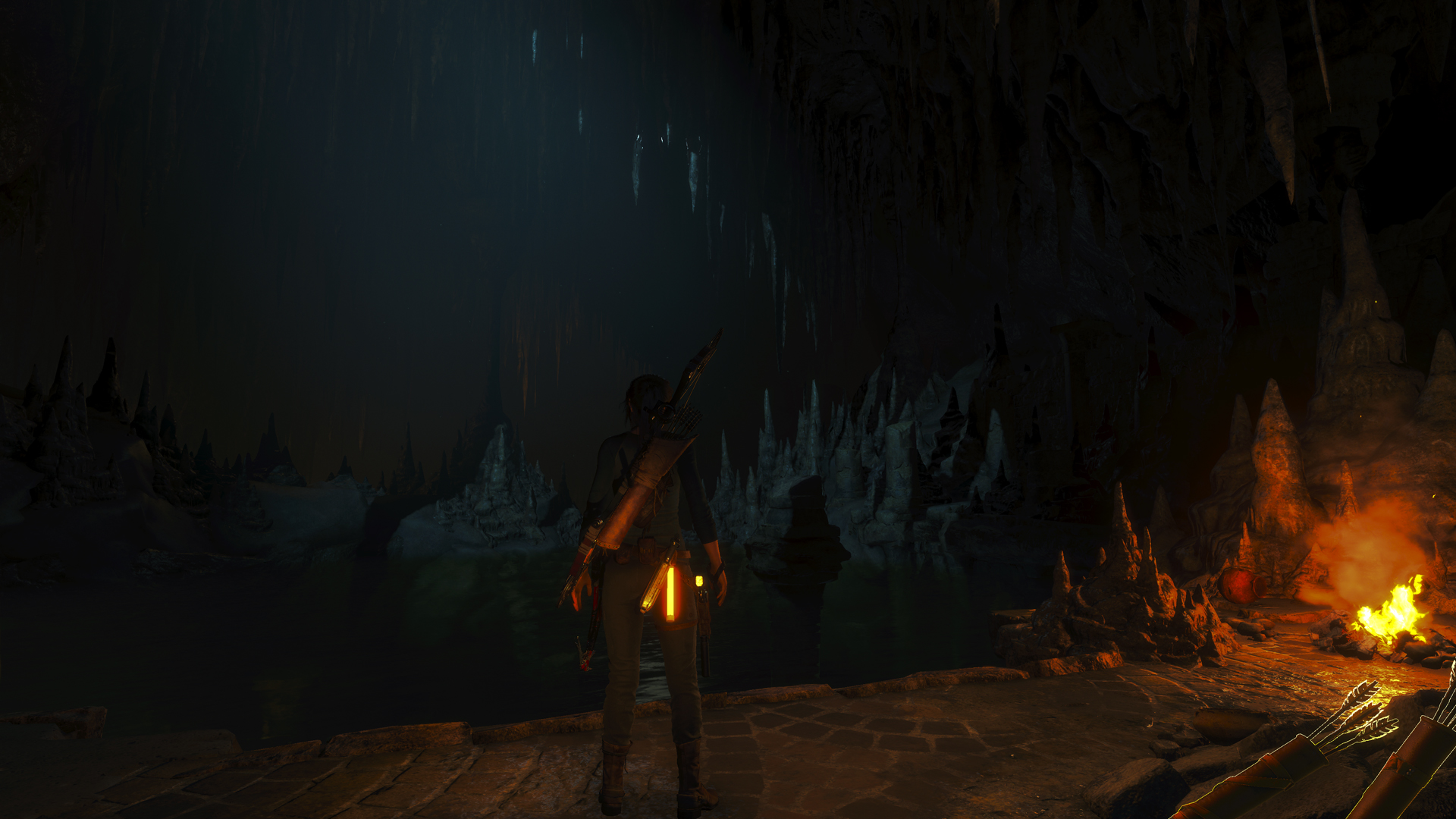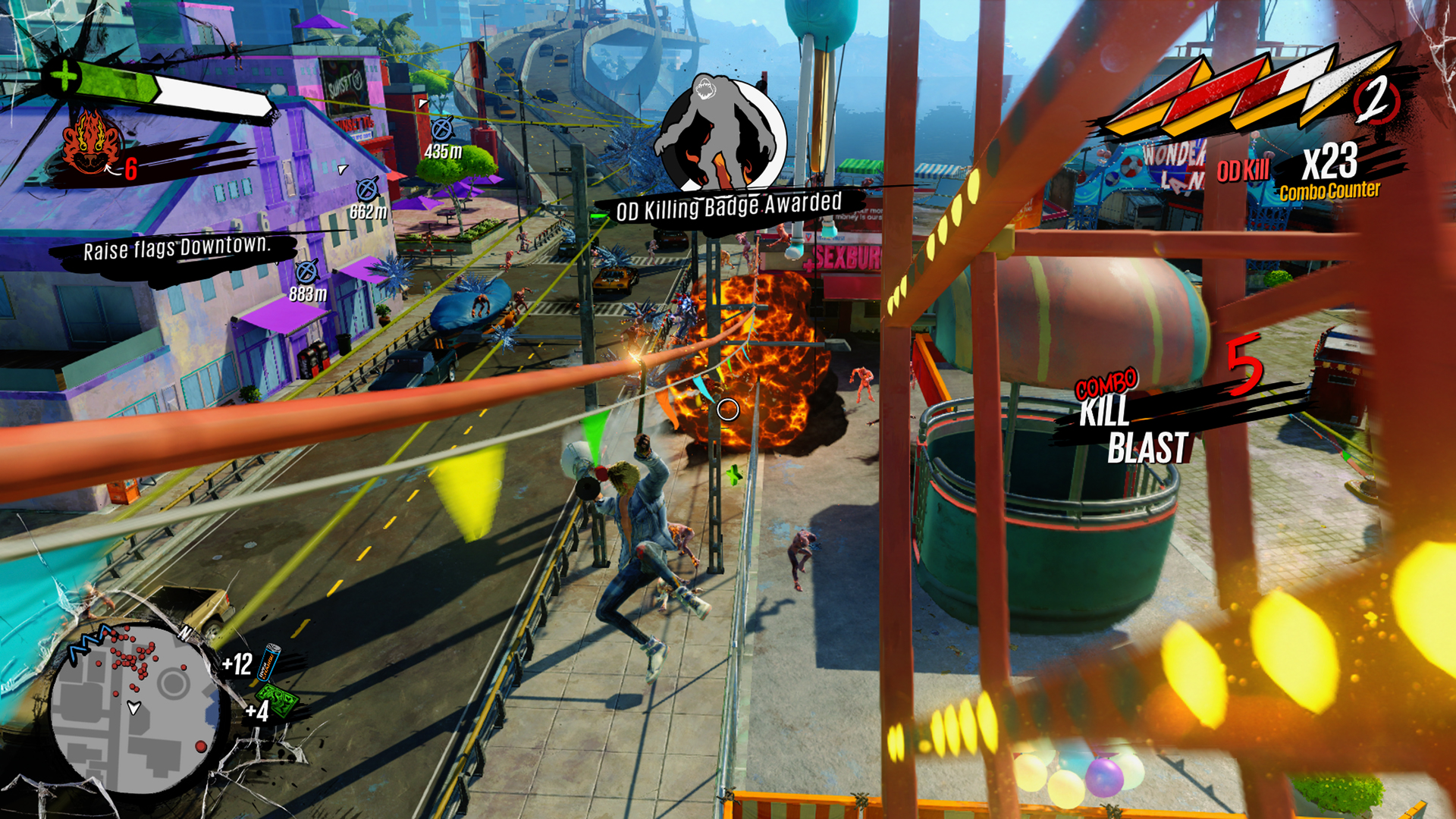
I've never cared all that much for backwards compatibility. In past cycles, the dawn of a new generation has drawn a line under the one that directly preceded it. In its own little way, that has been liberating. A hard reset on my desire to conquer an impenetrable backlog of unplayed games that have amassed in physical and digital libraries; a signal that I needn't cling onto my good intentions to play every good game any longer – that it is okay to move on. Microsoft's Xbox Series X backwards compatibility initiative has challenged that perspective.
I've had the Xbox Series X in my home for coming up on two weeks now and I've had a blast. I haven't been playing games that explore the frontiers of a new generation, but rather reinvesting time into releases that underpinned the Xbox One era. Having been in the Xbox ecosystem from the beginning, I now have a large library of games to choose from, with Game Pass filling in a few of the gaps. I've gone back and re-completed the campaigns for Halo 5: Guardians, Quantum Break, and Rise of the Tomb Raider. I've dipped back into Destiny 2, Final Fantasy 15, Monster Hunter World, Resident Evil 7, Sunset Overdrive, and plenty of others. Perhaps that sounds like a scattershot list to you, but, I picked these specific games to trial Xbox Series X backwards compatibility with good reason.
Huge improvements across the library

At the heart of Microsoft's backwards compatibility initiative is support for thousands of releases from across the three generations of Xbox. The company has promised that older titles running on Xbox Series X could benefit from steadier framerates, improved resolution, visual fidelity, and faster load times, thanks to the custom Zen 2 CPU, 12 teraflop RDNA 2 GPU, and the high-speed NVME SSD packed inside of the machine.
It's an impressive commitment that has been difficult to conceptualise, given that games are so often designed around the limitations of the hardware that they were originally built for. We know that a select few Xbox One games will transcend such limitations – such as Gears 5 and Forza Horizon 4, which are being directly optimised for Xbox Series X – but what gains were we realistically going to see across the spectrum of compatible games?
The reason I chose many of the titles on that list is because, be it in review or in the general direction of anybody unfortunate enough to overhear me, I have criticized each in the past for how they have run on Xbox One. So many games released on the console suffered with respect to consistency and stability. Enough so that I've grown accustomed to encountering any combination of imperfections as developers have attempted to strike a balance between performance and presentation on the ailing hardware: low-resolution assets, artifacting, screen-tearing, dropped frames, and so the list goes on.
The Xbox One X made up some ground here, though the games that were treated to performance-enhancing patches often encountered a new set of issues as a result – while the console delivered 6 teraflops of GPU performance, it was ultimately throttled by the rather meager CPU. Evolution is, after all, incremental. So, let me be clear: the Xbox Series X isn't powerful enough to suddenly make a bad game good, nor can it fix fundamental problems or underlying issues with optimisation and execution. What Xbox Series X backwards compatibility can do, however, is cast a lot of old games in a new light.
Return to Xbox One exclusives

I've been particularly impressed with the Xbox One exclusives running on Xbox Series X. Sunset Overdrive, Halo 5: Guardians and Quantum Break, released in 2014, 2015 and 2016, were among the most technically demanding games of their time and, quite honestly, they look and play like they could have released last week. The games are smooth and stable, running with a locked framerate, lightning quick load times, and a sublime graphical performance bolstered by Auto HDR – a function of the Xbox Series X that uses machine learning to automatically map HDR highlights onto older games at a system level, bringing attention to everything from the shimmer of environments to the flash of particle effects around you in combat.
Sign up to the GamesRadar+ Newsletter
Weekly digests, tales from the communities you love, and more
I'm seeing these types of improvements across the board. Destiny 2 looks as good as ever, but there are slight improvements to everything from framerate stability during chaotic world events to faster loading in the character menus, and shifting between environments – and this is all before Bungie has had a chance to get its Optimised for Xbox Series X patch out into the wild. Destiny has proven to be a great example of how the system can improve games straight out of the box, without requiring any additional work or optimisation from developers.
The same can be said of just about everything I've tested, although the most impressive gains are undoubtedly from the games that were originally given performance-enhancing patches for Xbox One X. It's as if these games are finally able to realise their potential, to run as the developers originally intended them too. Rise of the Tomb Raider's 'High fps mode' – which locked the resolution to 1080p to bolster performance to 60fps – was something of an unstable mess on One X, particularly in the larger scale areas. But on Xbox Series X, it runs at a smooth 60fps; it's utterly wonderful to play, enough so that I went back through the entire campaign. Final Fantasy 15 and Monster Hunter World had similar settings and problems, with their 'Lite' and 'Resolution' modes, respectively, which would waver anywhere between 30 and 50fps one One X. On Xbox Series X, it's able to lock-in at 60fps and it's all the better because of it.
I've never been one to worry about counting frames, although I can certainly tell the difference between something running at a locked performance versus something struggling at the threshold. So here's what I will say about Xbox Series X backwards compatibility: every game I tested received different degrees of enhancement, some more dramatic than others, but enhancement none the less. Be it old favourites or games I had once abandoned because the uneven framerate made the game feel sticky to play, all have been improved – they play better than ever. Now, with thousands of games in backwards compatibility I certainly can't say if that's true for everything, but my time with some of the most demanding games of the Xbox One generation has been a net positive. I wouldn't usually begin a new generation dipping back into the last, but the Xbox Series X is casting the Xbox One era in a brand new light.

GamesRadar+ is exploring the Xbox Series X in detail. Click the banner above to read all our hands-on reporting, exclusive interviews, and plenty more.

Josh West is the Editor-in-Chief of GamesRadar+. He has over 15 years experience in online and print journalism, and holds a BA (Hons) in Journalism and Feature Writing. Prior to starting his current position, Josh has served as GR+'s Features Editor and Deputy Editor of games™ magazine, and has freelanced for numerous publications including 3D Artist, Edge magazine, iCreate, Metal Hammer, Play, Retro Gamer, and SFX. Additionally, he has appeared on the BBC and ITV to provide expert comment, written for Scholastic books, edited a book for Hachette, and worked as the Assistant Producer of the Future Games Show. In his spare time, Josh likes to play bass guitar and video games. Years ago, he was in a few movies and TV shows that you've definitely seen but will never be able to spot him in.


